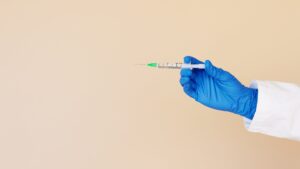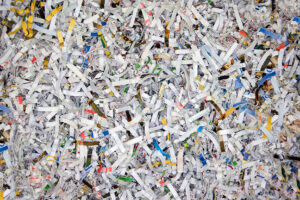As we enter National Diabetes Awareness Month, the spotlight turns not only to understanding the complexities of diabetes but also to fostering responsible and safe practices in its management. For individuals living with diabetes, proper disposal and management of medical waste are critical components of maintaining a healthy and safe environment. In this blog, we delve into the importance of educating patients on the correct procedures for handling and disposing of medical waste associated with diabetes care.
I. Understanding Diabetes-Related Medical Waste:
Diabetes management often involves the use of various medical supplies, including lancets, syringes, insulin pens, and glucose monitoring equipment. Proper disposal of these items is not only essential for personal safety but also for the well-being of the community and the environment.
II. The Impact of Improper Disposal:
Improper disposal of diabetes-related medical waste poses risks to individuals, healthcare workers, and the general public. Sharps, such as needles and lancets, can cause injuries and increase the risk of infections. Furthermore, these items can contribute to environmental pollution if not disposed of correctly.
III. Educating Patients on Safe Disposal Practices:
a. Use of Sharps Containers: Emphasize the importance of using puncture-resistant sharps containers for the disposal of needles and lancets. These containers should be easily accessible in the home and properly sealed when full.
b. Secure Sealing and Labeling: Instruct patients to securely seal containers and label them as “sharps waste” to alert waste disposal workers to the presence of potentially hazardous materials.
c. Avoiding Recapping Needles: Remind patients to avoid recapping needles, as this can increase the risk of accidental needlestick injuries. Instead, they should dispose of needles directly into sharps containers.
d. Proper Disposal of Glucose Monitoring Supplies: Guide patients on how to safely dispose of glucose test strips, lancets, and other testing supplies. These items, while smaller than sharps, still require proper disposal to prevent accidents.
IV. Community Resources and Collection Programs:
Inform patients about community resources and collection programs that facilitate the safe disposal of medical waste. Many localities have drop-off locations or special collection events for sharps and other medical waste items.
V. Environmental Considerations:
a. Eco-Friendly Disposal Options: Encourage patients to explore eco-friendly disposal options for diabetes-related waste. Some areas have programs that allow for the recycling of certain types of medical waste.
b. Reducing Plastic Waste: Consider discussing with patients the use of reusable insulin pens and other devices to reduce the overall plastic waste associated with diabetes management.
VI. Legislation and Regulations:
Highlight relevant legislation and regulations regarding the disposal of medical waste in your region. This can include information on state or local guidelines for proper disposal practices and any available support or resources.
Conclusion:
National Diabetes Awareness Month provides a valuable opportunity to not only raise awareness about diabetes but also to empower patients with the knowledge needed to manage their medical waste responsibly. By educating individuals on safe disposal practices, the diabetes community can contribute to a safer and healthier environment for everyone. Proper disposal is not just a personal responsibility but a collective effort to ensure the well-being of individuals living with diabetes and the broader community. As we work towards a future free from the complications of diabetes, let us also strive for a world where responsible medical waste management is an integral part of every patient’s journey.










